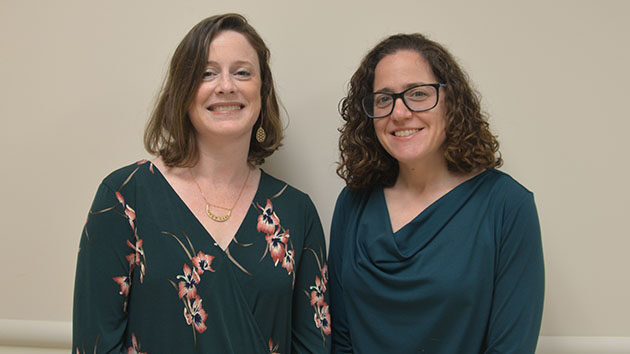$3.2M NIH Grant Supports New Research on Atherosclerosis

Two Albany Medical College scientists have been awarded a $3.2 million, four-year grant from the National Institutes of Health (NIH) to study how the aged immune system impacts the progression of atherosclerosis.
Also called hardening of the arteries, atherosclerosis occurs when plaque builds up in the arteries, causing them to narrow over time and reducing blood flow to tissues and organs in the body. This can lead to a range of cardiovascular diseases, including heart attack and stroke, which collectively are the leading cause of death in the U.S. and worldwide.
Previous studies have shown that persistent inflammation is a key factor in the progression of atherosclerosis. It is also known that aging is associated with non-resolving inflammation.
Led by Gabrielle Fredman, PhD, professor in the Department of Molecular and Cellular Physiology, and Kate MacNamara, PhD, professor in the Department of Immunology and Microbial Disease, the researchers will use mouse models to study the roles of specific molecules and compounds — including pro-inflammatory leukotrienes, prostaglandins, and specialized pro-resolving mediators like resolvins — in regulating inflammation in age-related atherosclerosis.
“Aging is a major risk factor for atherosclerotic cardiovascular disease,” said Dr. Fredman. “Understanding the mechanisms that regulate inflammation and the relationship between our immune system, inflammation, and atherosclerosis are the first steps toward developing new treatment strategies for this disease.”
Ultimately, the team hopes to provide new insights into what happens at the molecular level when inflammation does not resolve, and to reveal new ways to rejuvenate older immune systems which could, in turn, help slow or combat the progression of atherosclerosis.
Titled, “Inflammation-resolution impairments in aging and atherosclerosis,” the study is funded by the NIH’s National Heart, Lung, and Blood Institute.